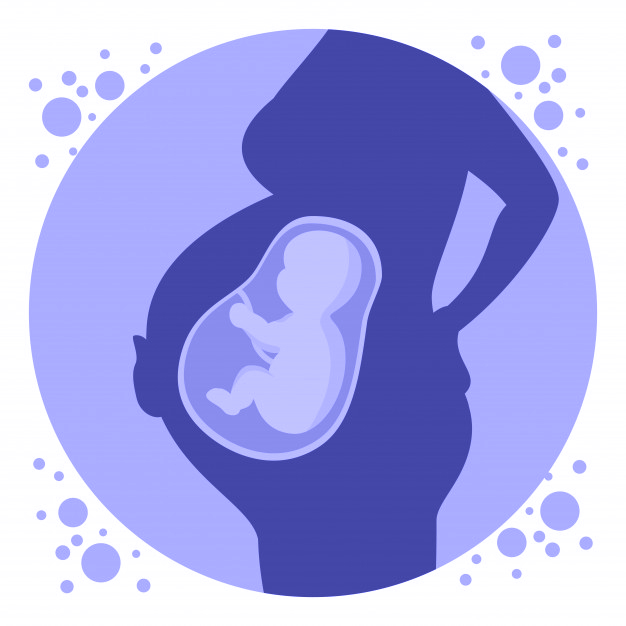Diabetes in pregnancy
Gestational diabetes is the name given to diabetes during pregnancy. It almost always goes away as soon as your baby is born. However, if gestational diabetes is not treated during your pregnancy, you may experience some complications.
- Pregnancy hormones cause the body to be resistant to the action of insulin.
- Insulin fails to effectively move glucose into the cells that need it.
- On the other hand need of carbohydrates for yourself and the developing baby increases during the pregnancy
- As a result, glucose accumulates in the blood, causing blood sugar levels to rise.
- Gestational diabetes is diagnosed with a blood test.
- Screening for gestational diabetes between weeks 24 to 28.
- Women at high risk are to be screened in the first trimester.
- Being overweight.
- Having a parent or sibling with diabetes.
- Having had gestational diabetes in the past.
- Having glucose in your urine.
Gestational diabetes can affect your developing baby in the following ways:
- High birth weight: Exposure to higher sugar levels from the maternal bloodstream can result in a larger baby and a high birth weight.
- Low blood sugar: If your blood sugar has been elevated during the pregnancy, your baby may have low blood sugar, called hypoglycemia, shortly after birth.
- The complications of gestational diabetes can be prevented by keeping your blood sugar under control during your pregnancy.
- Elevated maternal blood sugar during the first 12 weeks of pregnancy, when the major organ systems are developing, increases risks to the baby.
The first step in treating gestational diabetes is to modify your diet to help keep your blood sugar level in the normal range. Meet your doctor and a dietitian and plan accordingly.
The main dietary principles:
- Avoid high-sugar foods. Avoid foods like desserts, sweets, candy, cookies, soft drinks and fruit juice. You should increase natural sugars and fruits.
- Eat reasonable portions of high-carbohydrate foods. Carbohydrates are found in breads, cereals, rice, pasta, potatoes, beans, fruits, milk, yogurt and some vegetables. Have them but in limited amounts. Do not overeat.
- Eat smaller, more frequent meals.
- Monitor your blood sugar regularly.
You should check your blood sugar at least four times daily, or as directed by your doctor.
Other Treatments
For some women who develop gestational diabetes, following a diet is not enough to control their blood sugar, and they may need to take insulin.
After Delivery
- After delivery, most women are able to resume their normal eating habits.
- Gestational diabetes does not interfere with your ability to breastfeed your baby.
- Mostly, gestational diabetes almost always goes away after your baby is born.
- If your blood sugar doesn't return to normal, it may mean that you had diabetes before you became pregnant.
- Women who've had gestational diabetes have a higher risk of developing type 2 diabetes.
- Women who had diabetes before getting pregnant have a higher risk of pregnancy complications.
- Eat 3 meals and 2–3 snacks per day
- Measure your servings of starchy foods
- A reasonable serving size is about 1 cup of cooked rice, grain, noodles or potatoes, or 2 pieces of bread, per meal.
- One 230 ml cup of milk at a time
- One small portion of fruit at a time
- Do eat fruit that has been canned in syrup. Do not drink fruit juice and sugary drinks.
- Eat more fiber
- Try whole grain bread, brown rice, wild rice, whole oats, barley, millet or any other whole grains.
- Include split peas, lentils and any type of bean: pinto, red, black, or garbanzo.
- Avoid white bread and white rice.
- Breakfast is a must after long fasting at night.
- Strictly limit sweets, sugars and desserts
- Cakes, cookies, candies, and pastries are high in sugar and are likely to raise blood sugar levels too much.

